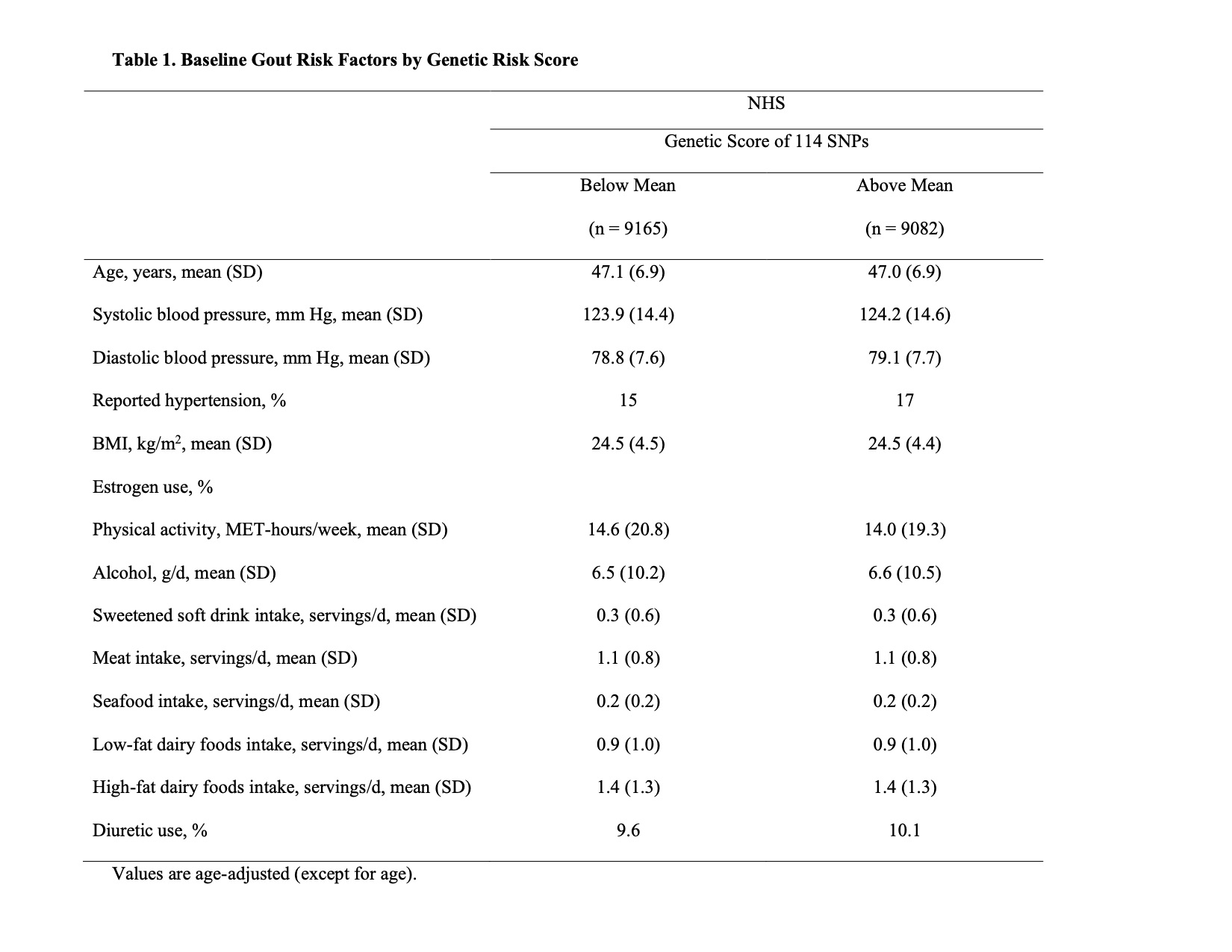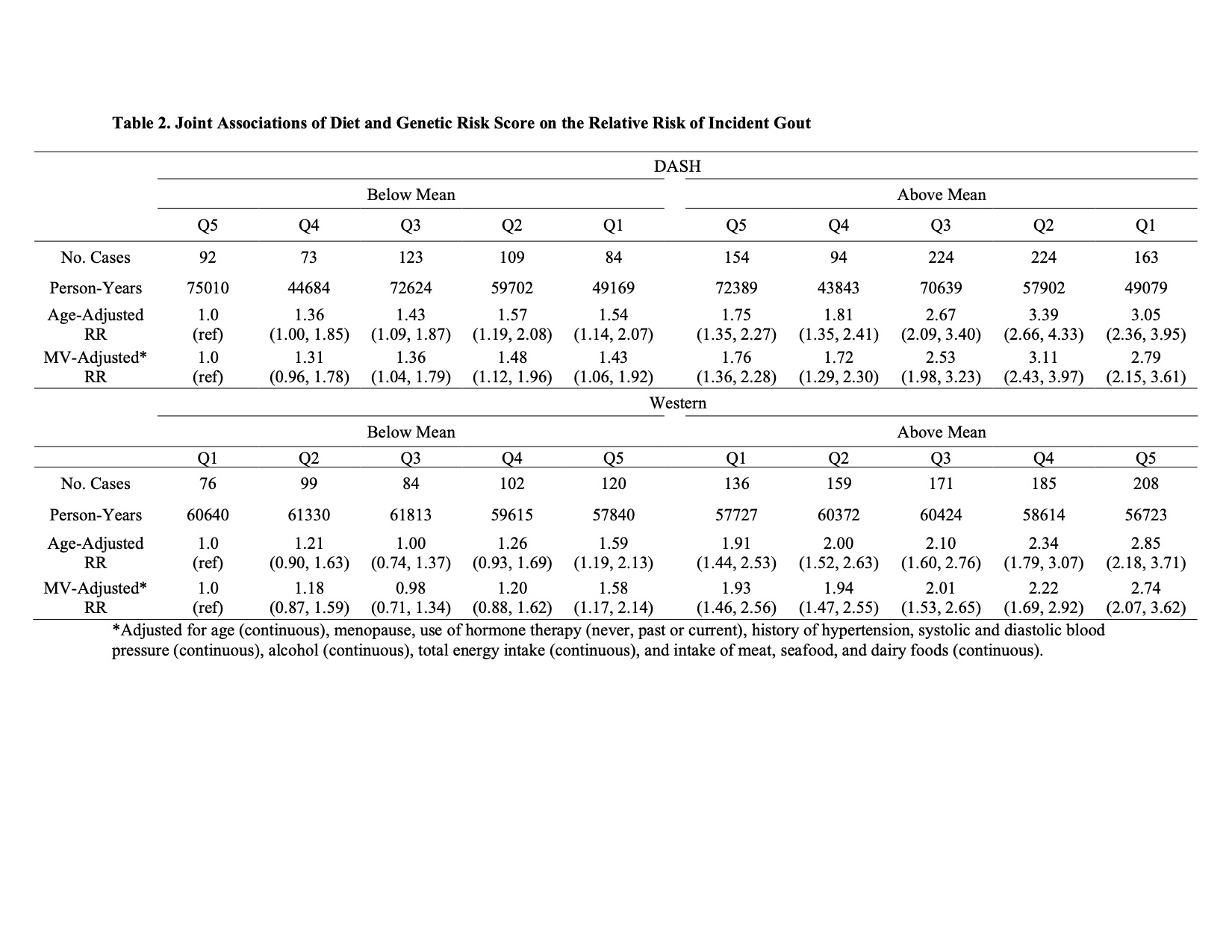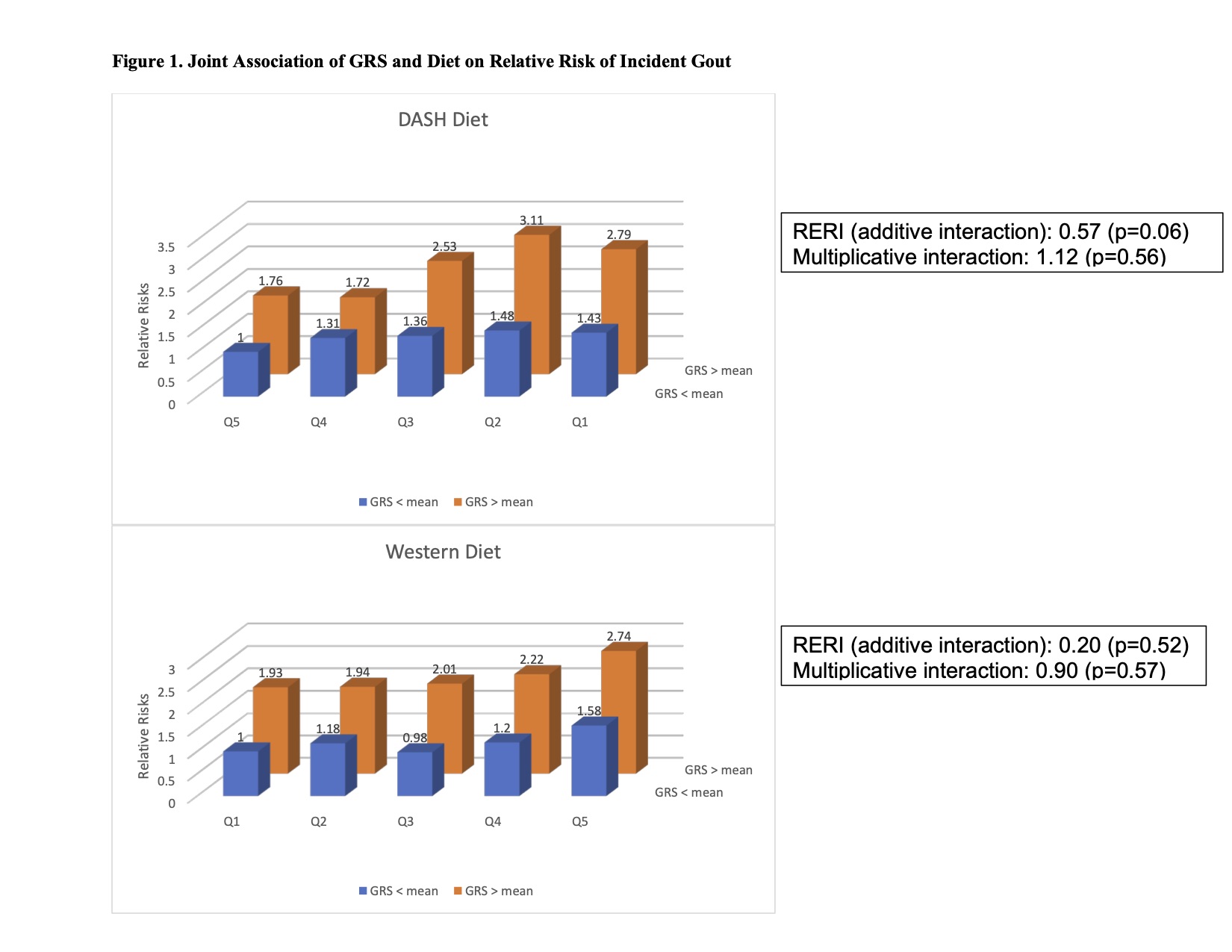Session Information
Date: Sunday, November 7, 2021
Title: Abstracts: Epidemiology & Public Health I: Risk in Rheumatic Diseases (0988–0991)
Session Type: Abstract Session
Session Time: 4:45PM-5:00PM
Background/Purpose: Gout has long been considered a male disease. However, several recent analyses of the Global Burden of Disease (GBD) Study report a disproportionate worsening of gout burden among women (Xia Rheumatology 2020), suggesting intensive dietary measures for gout prevention are indicated, especially in women. The Dietary Approaches to Stop Hypertension (DASH) diet lowers serum urate and is associated with a lower risk of incident gout while the Western diet is associated with an increased risk (Rai BMJ 2017). However, whether the dietary impact is affected by genetic risk remains unknown. We investigated the potential interaction between genetic predisposition and diet on the risk of incident gout among women.
Methods: We examined the role of genes on the association between two dietary patterns (DASH and Western) on the risk of incident gout in 18,247 women from the Nurses’ Health Study (NHS) over 34 years. Using validated food frequency questionnaires, for each participant we derived: 1) DASH score emphasizing fruits, vegetables, nuts and legumes, whole grains, low-fat dairy, and reduced intake of saturated fat and sugar-sweetened beverages (SSBs) and 2) Western diet score characterized by high intake of red and processed meats, SSBs, desserts, French fries, and refined grains. The DASH and Western diet scores were categorized into quintiles, with higher quintiles indicating higher adherence to these dietary patterns. We derived a genetic risk score (GRS) using 114 serum urate single nucleotide polymorphisms from the latest GWAS (Tin Nat Genet 2019), with a higher GRS indicating a higher genetic predisposition for hyperuricemia.
Results: We ascertained 481 incident cases of self-reported gout among women without a genetic predisposition and 859 incident cases among women with a genetic predisposition in NHS. The baseline clinical gout risk factors were similarly distributed among women with and without a genetic predisposition (Table 1). For the DASH diet, the multivariable relative risks (RR) of gout for quintiles 5 through 1 were 1.0, 1.31, 1.36, 1.48, 1.43 (95% CI, 1.06 to 1.92) among those without a genetic predisposition and 1.76, 1.72, 2.53, 3.11, 2.79 (95% CI, 2.15 to 3.61) among those with a genetic predisposition, respectively (Figure 1 and Table 2). Comparing quintiles 5 vs. 1, this yielded a relative excess risk due to interaction (RERI) of 0.57 (95% CI, -0.02 to 1.17) which approached statistical significance (p=0.06). For the Western diet, the RR of gout for quintiles 1 through 5 were 1.0, 1.18, 0.98, 1.20, 1.58 (95% CI, 1.17 to 2.14) among those without a genetic predisposition and 1.93, 1.94, 2.01, 2.22, 2.74 (95% CI, 2.07 to 3.62) among those with a genetic predisposition, respectively (Figure 1 and Table 2). This yielded RERI of 0.20 (95% CI, -0.40 to 0.81, p=0.52).
Conclusion: In this large prospective female cohort with 34 years of follow-up, regardless of genetic predisposition, DASH diet was associated with lower risk of incident gout while Western diet was associated with higher risk. The impact of DASH diet appeared stronger among those with a genetic predisposition to gout. These data support the recent GBD study’s recommendation for intensive dietary measures for gout prevention, especially in females.
To cite this abstract in AMA style:
Yokose C, McCormick N, Lu N, Joshi A, Choi H. Does Diet Affect Gout Risk Differently Among Genetically Predisposed Women?: Prospective Female Cohort Study Findings over 34 Years [abstract]. Arthritis Rheumatol. 2021; 73 (suppl 9). https://acrabstracts.org/abstract/does-diet-affect-gout-risk-differently-among-genetically-predisposed-women-prospective-female-cohort-study-findings-over-34-years/. Accessed .« Back to ACR Convergence 2021
ACR Meeting Abstracts - https://acrabstracts.org/abstract/does-diet-affect-gout-risk-differently-among-genetically-predisposed-women-prospective-female-cohort-study-findings-over-34-years/



